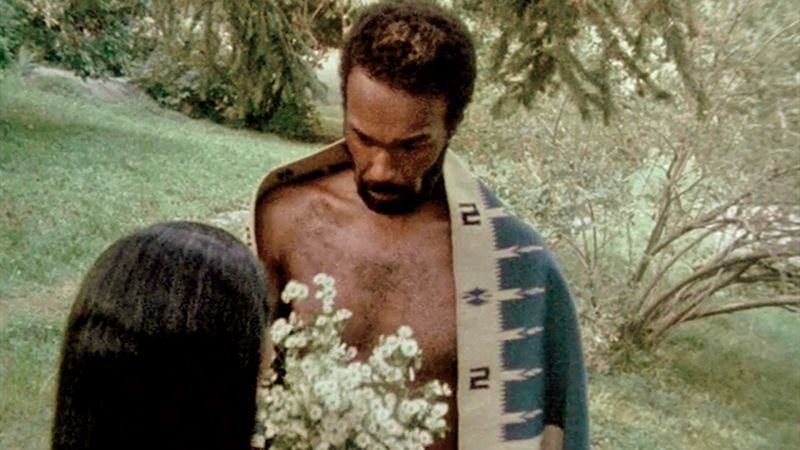by Jake Rubenstein
As our celebration for Black History Month continues, Fandor is proud to present five essential films that best highlight Black culture within cinema. From one of the most pivotal horror films ever made, to masterworks that encapsulate cinematic greatness, here are Fandor’s top picks to round out our Black History Month celebration:
Night of the Living Dead (1968). Considered to be one of the most essential horror films ever made, George A. Romero’s Night of the Living Dead serves its purpose as being the Godfather of zombie films, while also maintaining an eerie subtext that echoes the injustices of Black Americans around the Civil Rights Movement. In the film, Duane Jones stars as our protagonist Ben, as he along with a group of survivors barricade themselves in an old farmhouse as they ward of a horde of flesh-eating zombies that are ravaging through the East Coast of the United States. Though the film’s plot is relatively straight forward for a zombie feature, Duane’s outstanding performance, along with the film’s bleak conclusion that reflects on the injustices of Black Americans, are incredibly effective as they ground the film in genuine elements of real-world horror. Night of the Living Dead serves as a disturbing reminder of the real horrors in humanity, and is easily amongst the most essential horror films ever made.
Haven’t seen George A. Romero’s zombie masterpiece, or looking to revisit this timeless classic? Be sure to stream George A. Romero’s Night of the Living Dead now on Fandor.
Guess Who’s Coming to Dinner (1967). With the recent passing of Sidney Poitier, our second pick in celebration of Black History Month is a true highlight in the career of the legendary actor, activist, and humanitarian. Guess Who’s Coming to Dinner stars Sidney Poitier alongside Spencer Tracy, Katharine Hepburn, as well as Katherine Houghton, and is easily one of the greatest films to emerge from the Golden Age of Hollywood. Much like Night of the Living Dead, the narrative is direct commentary of the Civil Rights era of the 1960s as it follows a couple whose attitudes are challenged when their daughter introduces them to her African-American fiancé. Between the film’s impactful message that explores the putrid effects of racism, as well as featuring an A-list cast that easily presents some of the most moving performances to bless the big screen, Guess Who’s Coming to Dinner is beyond essential, and stands test of time as being one of the greatest films of modern cinema.
The Harder They Come (1972). For our third pick in celebration of Black History Month, we’re shining the spotlight on the career of Jamaican filmmaker, Perry Henzell. Although Perry had only directed two films before passing away in 2007, his first work is a timeless classic that also serves as the first feature film to stem from Jamaica. 1972’s The Harder They Come stars Jimmy Cliff as Ivanhoe Martin, a young Jamaican man that wishes to become a successful Reggae singer, but soon finds himself tied to corrupt record producers and drug pushers. Made on a shoestring budget, the narrative provides an intimate look at the inner workings of fascism. Outside of the film’s plot elements, The Harder They Come also features a fantastically gritty performance from Jimmy Cliff, along with an outstanding soundtrack that will surely stick with you for years to come. All-in-all, Perry Henzel’s first feature film serves as a remarkable telling of a Jamaican folk hero’s tale.
Looking to watch this timeless piece of Jamaican cinema? Look no further, as The Harder They Come is now available for streaming on Fandor.
Ganja & Hess (1973). This month’s fourth selection in celebration of Black History Month takes us back to the horror genre and once again stars Duane Jones as his follow up leading role to George A. Romero’s Night of the Living Dead. In the film, Duane Jones plays Dr. Hess Green, and takes the form of a vampire feature after he is stabbed with an ancient, germ-infested knife, leading to an insatiable desire for blood. Much like Night of the Living Dead serving as a zombie film on the surface, the work presents itself within the framework of a specific subgenre of horror films, but what truly drives the production is director Bill Gunn’s artistic vision. Throughout the 112-minute runtime, Gunn’s masterwork explores the Black experience by focusing on what it means to both a victim or a murderer, as well as being oppressed or being the oppressor, which are all complications that can develop out of a fractured identity. With stellar performances amongst the cast, and a narrative framework that proves to be incredibly ahead of its time, Ganja & Hess is easily amongst some of the most brilliant genre films ever made.
Emperor Jones (1933). To round out our list of top films to celebrate Black History Month, we’re going to be showcasing a personal favorite feature from the Pre-Code era. 1933’s Emperor Jones is directed by Dudley Murphy and stars Paul Robeson as Brutus Jones, an individual who escapes from jail after killing a guard, and through bluff and bravado, soon finds himself being hailed an emperor on a Caribbean Island. Though the work is certainly a sign of the times in regard to the derogatory names for African Americans that are used throughout the film’s runtime, Paul Robeson’s talent in the role of Brutus is seamlessly unmatched, delivering perhaps one of the strongest performances of the Pre-Code era. All-the-while, utilizing the role as a means to contradict the racist ignorance that had plagued Hollywood and the entertainment industry as a whole during the time.
Now streaming on Fandor, Emperor Jones has remained a somber reflection of the times, while also delivering a truly remarkable performance from one of the industry’s all-time greats.
In celebration of Black History Month throughout February, Fandor will be showcasing Black History in Cinema on the Fandor independent streaming app. Click here to view our curated library.




